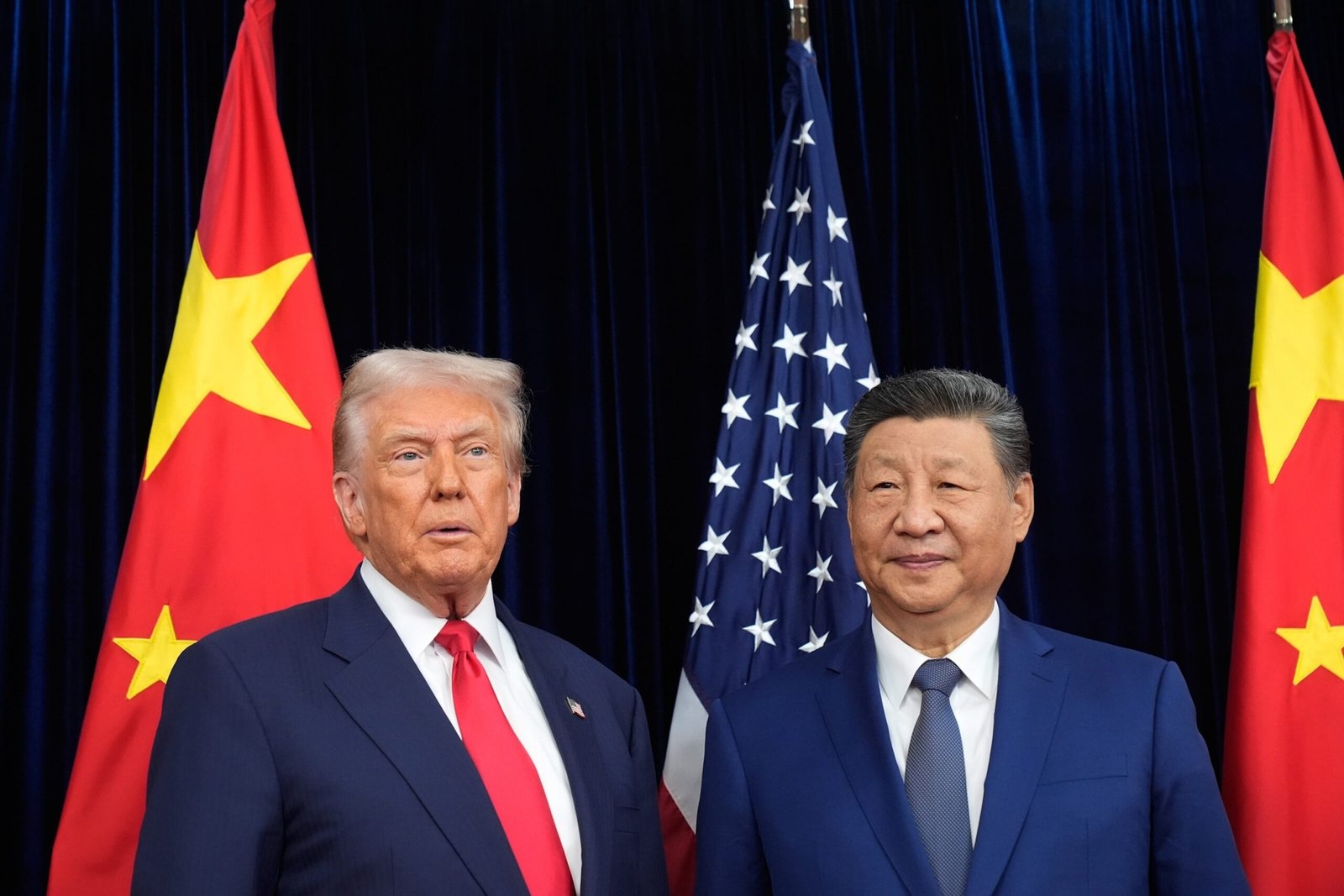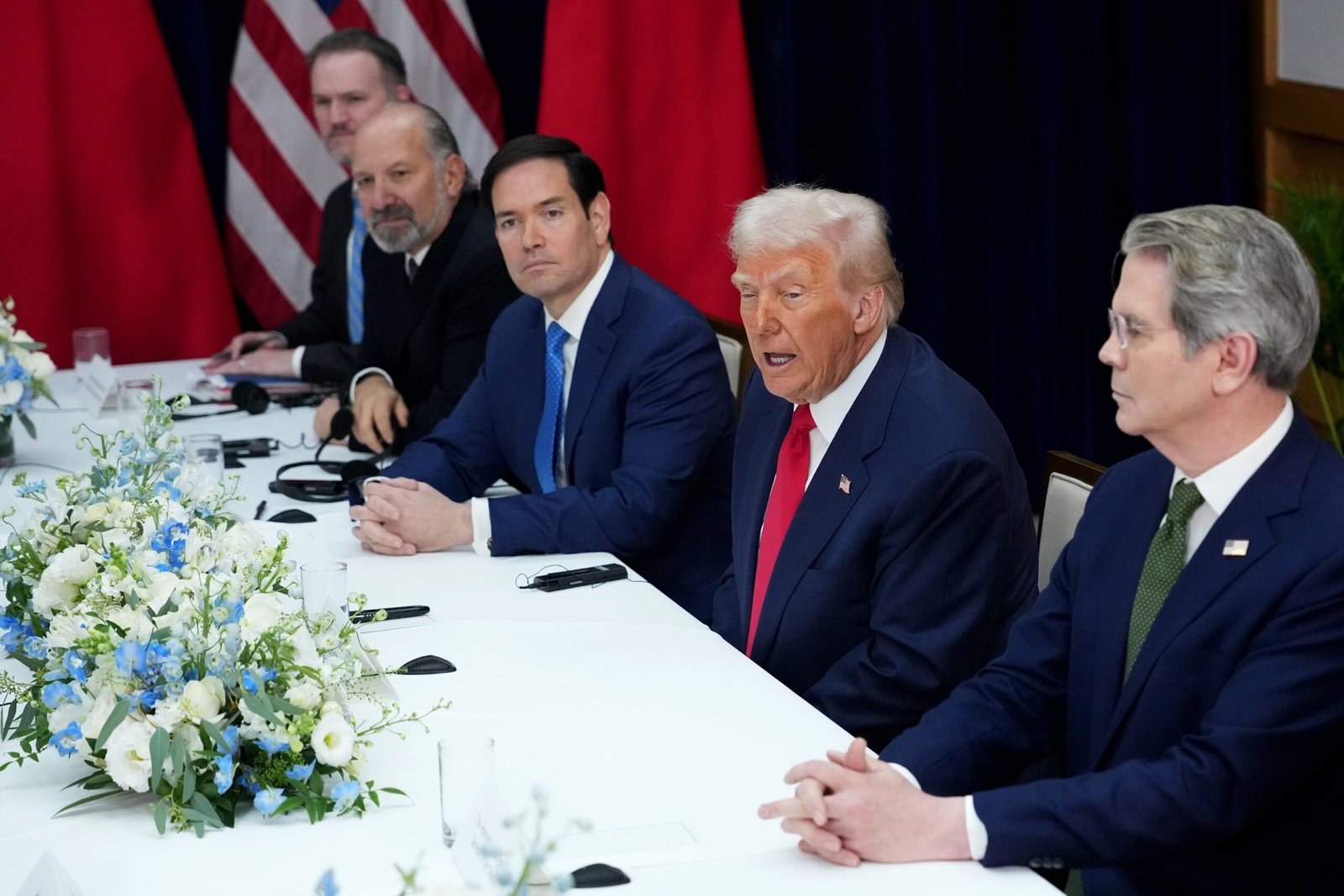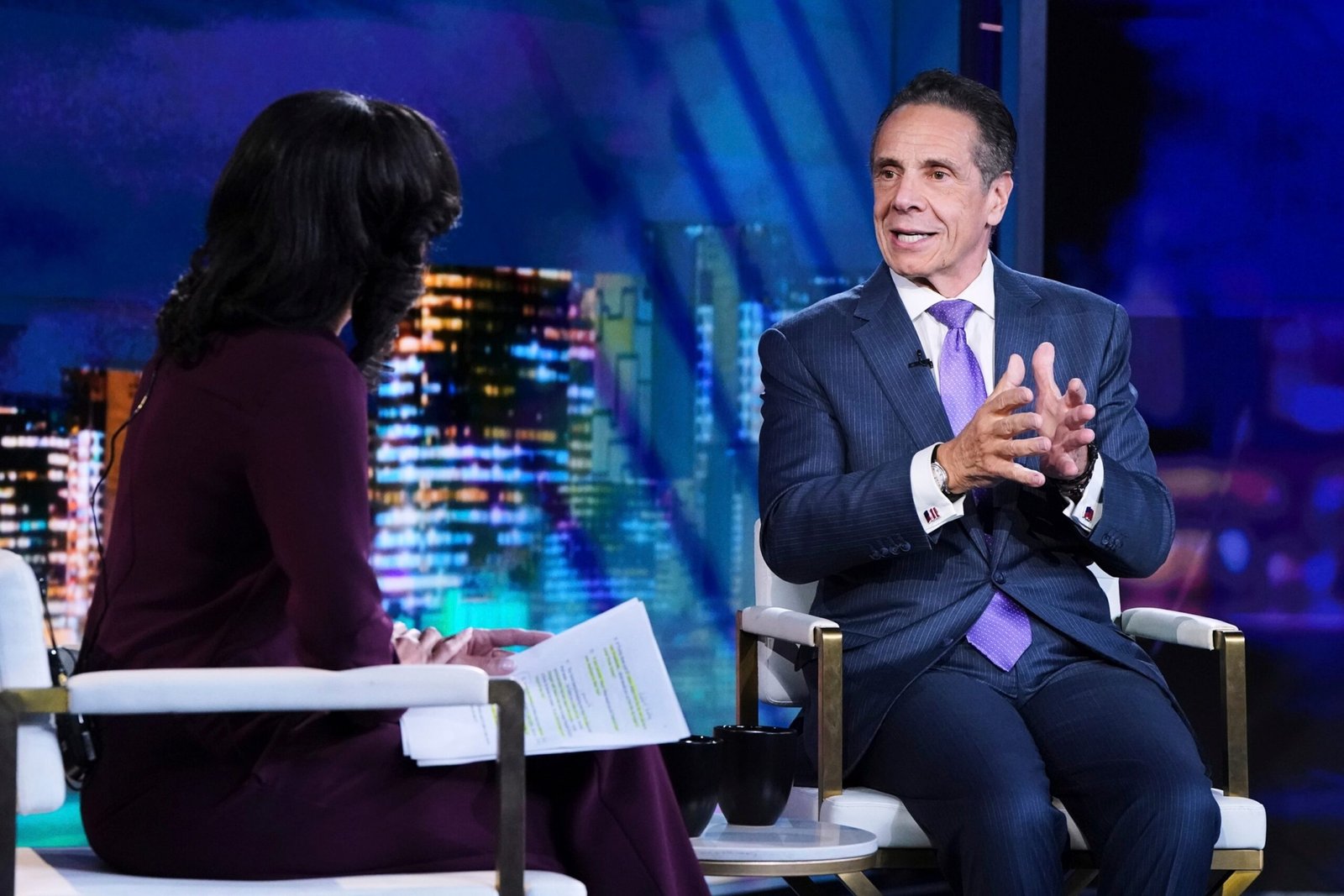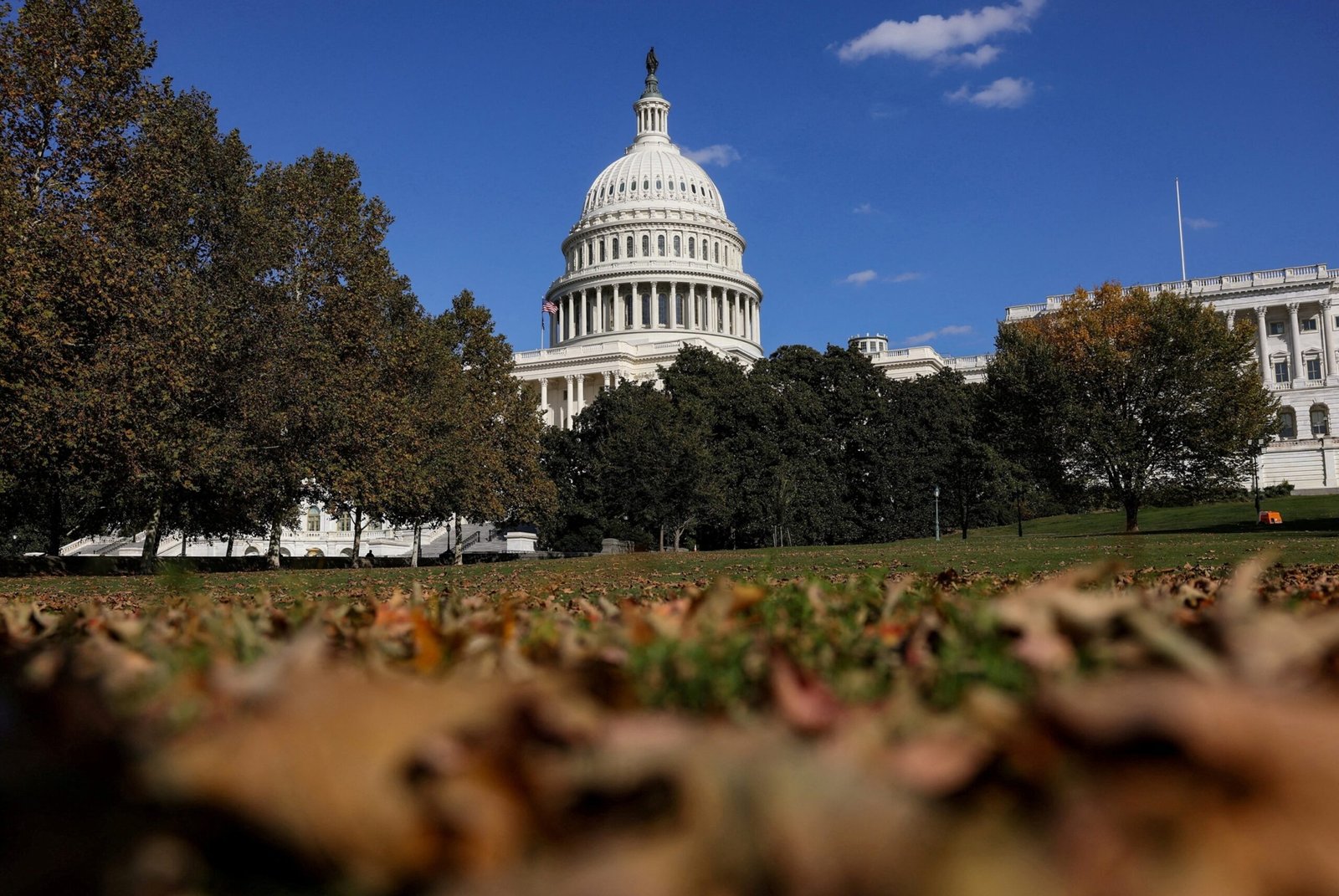President Donald Trump raised questions Wednesday night about a decades-old U.S. ban on testing its nuclear weapons by detonation, a prospect that experts say is dangerous for populations and would open a door for adversaries to test and hone their most powerful weapons.
Minutes before a meeting with Chinese President Xi Jinping, Trump posted on his social media platform that he “ordered the War Department to begin testing our nuclear weapons on a level playing field.”
“That process will begin immediately,” the president added.
Playing the president on social media
The White House did not want to clarify whether Trump was referring to explosive tests of nuclear weapons, which only North Korea has carried out in the 21st century, or to tests of platforms that could transport a nuclear weapon, which is routine.
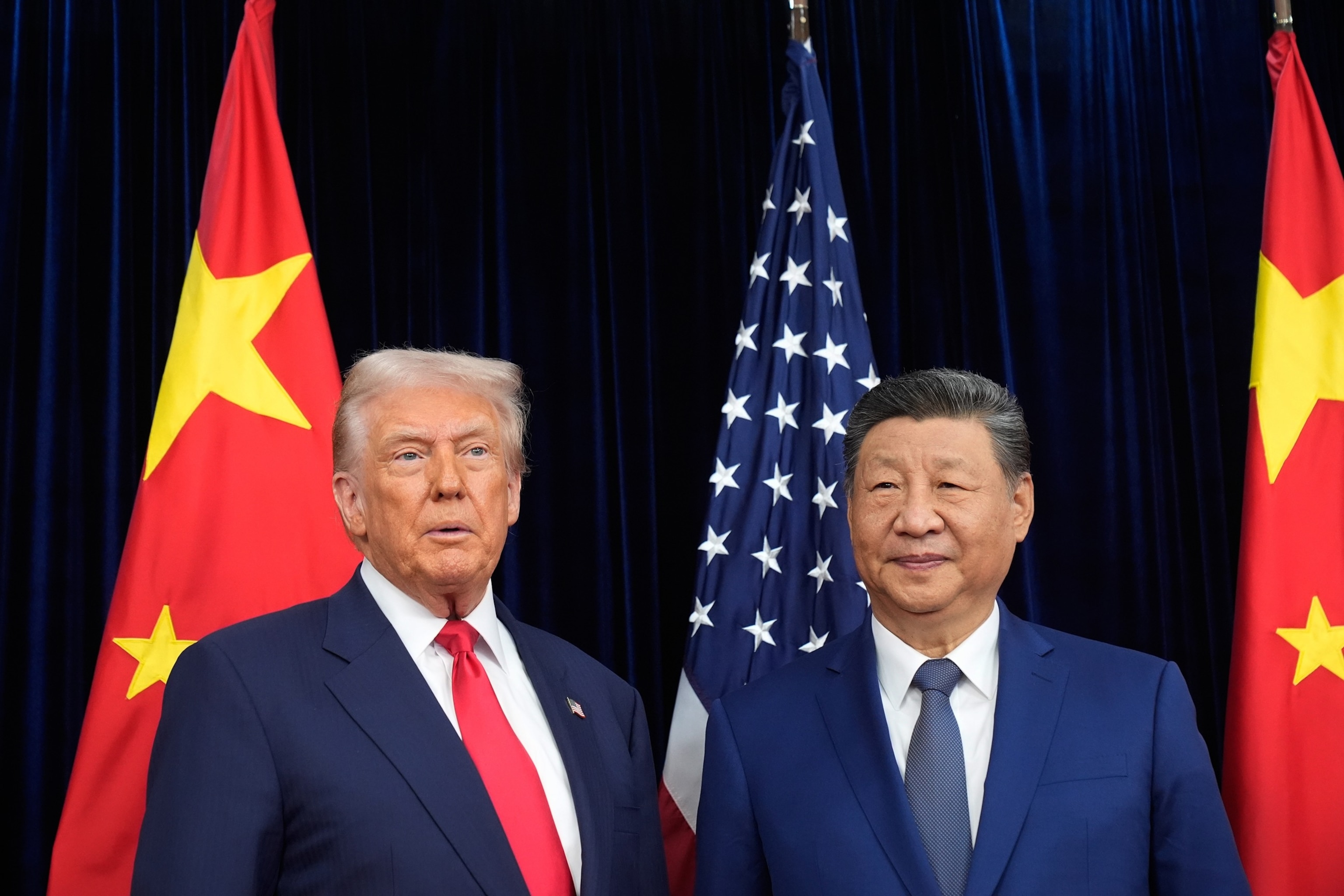
President Donald Trump and Chinese President Xi Jinping pose for a photo before their U.S.-Chia summit meeting at Gimhae International Airport in Busan, South Korea, Oct. 30, 2025.
Mark Schiefelbein/AP
When Vice President JD Vance was asked Thursday what Trump meant, he said the president’s social media post “speaks for itself.”
“We have a big arsenal…Sometimes you have to test it to make sure it works and works properly,” Vance said.
Vice Adm. Richard Correll, in his confirmation hearing Thursday as commander of the U.S. Strategic Command that oversees the deployment of nuclear weapons in combat, emphasized the president’s reference to testing on an “equal basis.”
“I wouldn’t assume the president’s words meant nuclear testing,” Correll said, noting the president’s reference to testing on an “equal basis.”
“Neither China nor Russia has conducted a nuclear explosive test. So I’m not reading anything or reading anything,” he said, hinting that the United States would not seek to unfreeze a 30-year freeze on nuclear test explosions.
However, pressed by ABC News about the release, the White House would only say that “potentially” Trump was referring to tests that fit current standards.
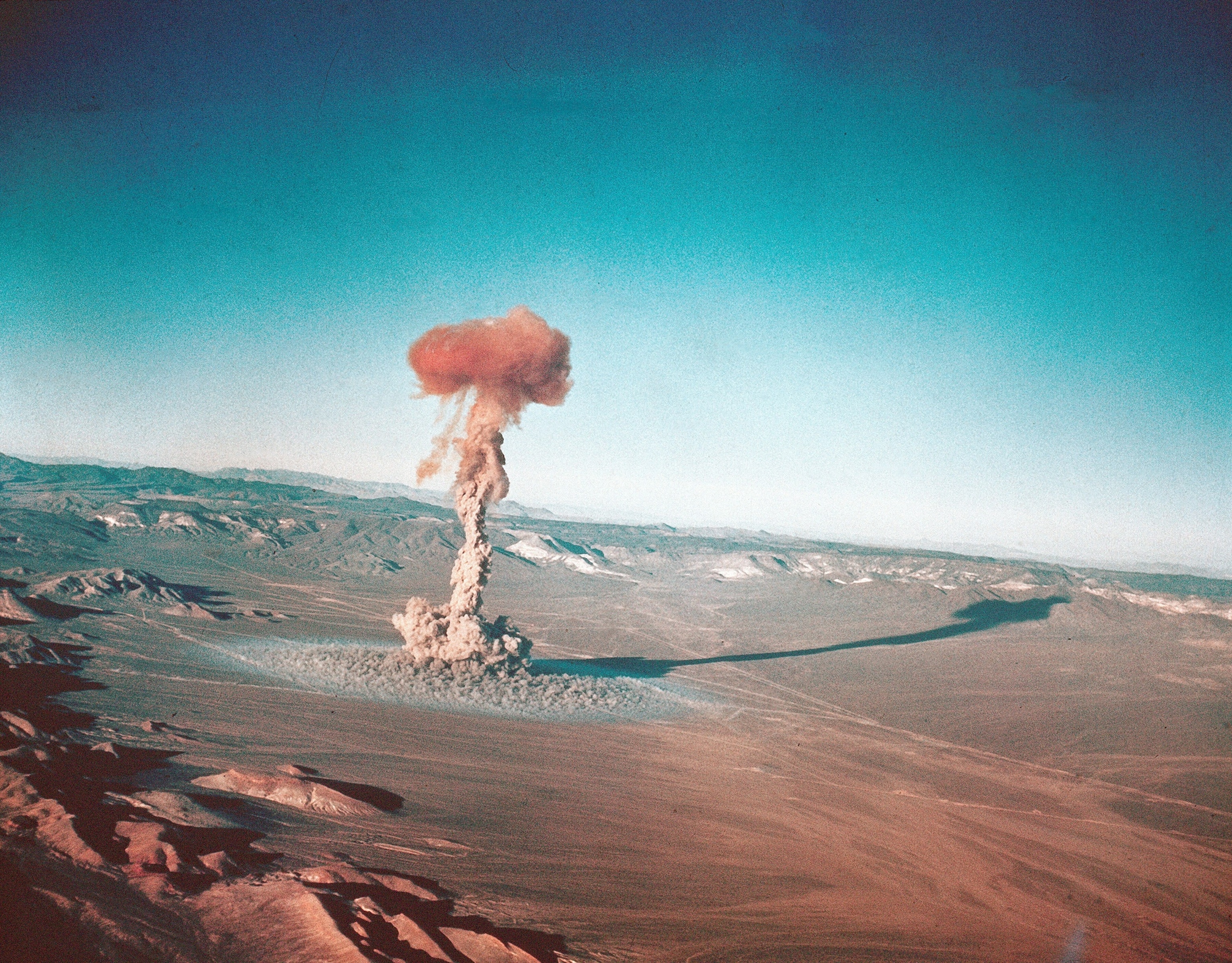
A subsurface atomic test is shown on March 23, 1955 at the Nevada Test Site near Yucca Flats, Nevada.
US Atomic Energy Commission via AP, FILE
The consensus on nuclear control is “at a turning point”
The United States last tested a nuclear weapon in 1992, before President George HW Bush signed a ban on nuclear testing, including underground. The United States and Russia are signatories to the 1996 Comprehensive Nuclear Test Ban Treaty, which banned all test explosions.
But the treaty is not in force because it did not bring together enough countries to ratify it, including the United States and Russia. Even so, the rejection of nuclear explosives has become established as the norm.
Experts say the United States has worked as part of a global consensus to combat nuclear weapons proliferation, one of whose key pillars is a commitment not to explode nuclear weapons as part of testing.
“The nonproliferation regime is at an inflection point,” said Kelsey Davenport, director of nonproliferation policy at the Arms Control Association.
“If any state conducts testing at this time, it could open the door for other countries to see a path forward to develop a viable nuclear deterrent, particularly if a testing state [has] We signed the Comprehensive Nuclear Test Ban Treaty,” he said.
That “would undermine the long-standing norm against nuclear testing that has been binding on every state except North Korea,” Davenport said.
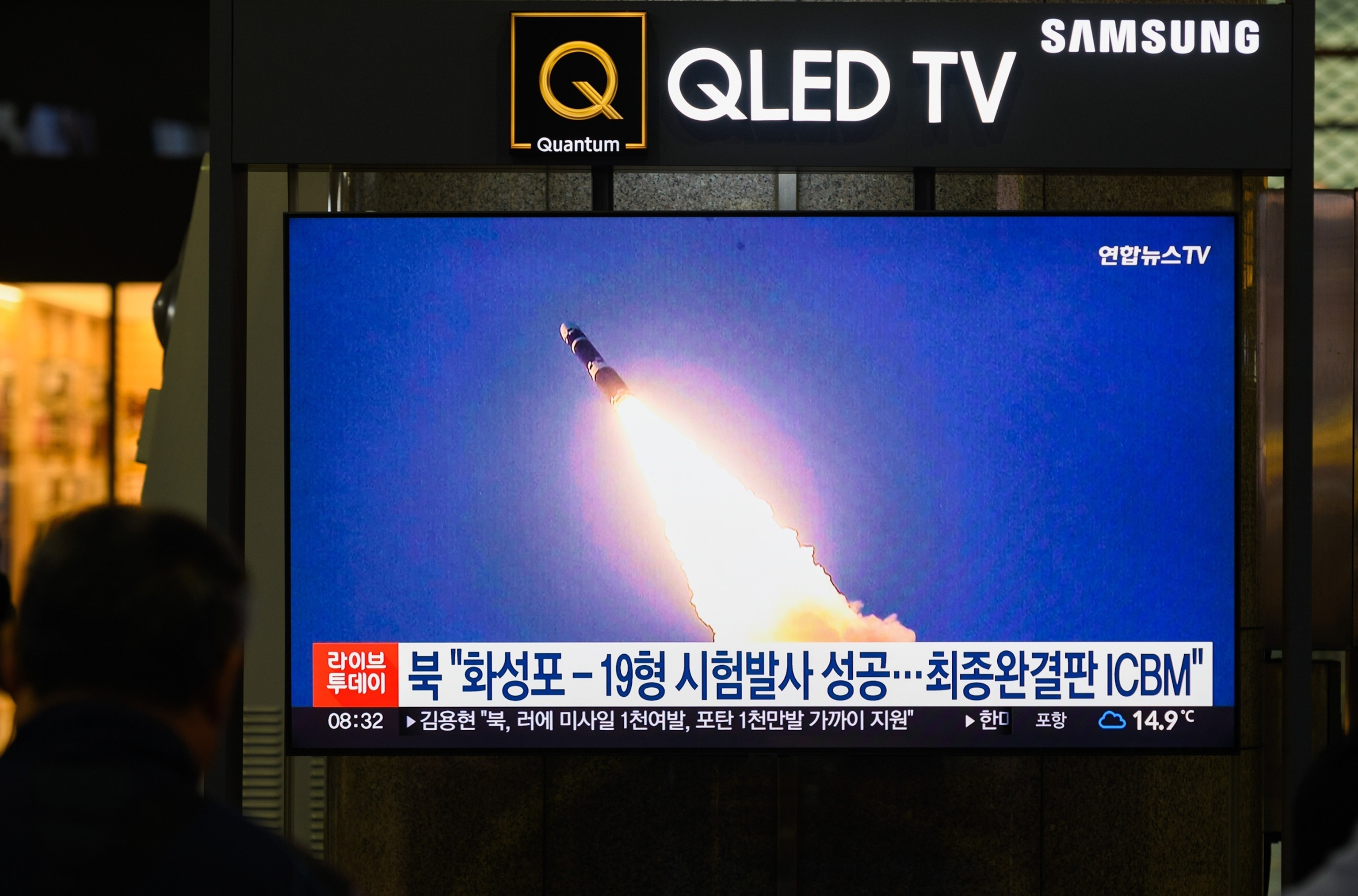
A 24-hour Yonhapnews TV broadcast at Yongsan Train Station in Seoul shows a news broadcast about a test launch of the new “Hwasong-19” intercontinental ballistic missile (ICBM) at an undisclosed location in North Korea. The North’s Korean Central News Agency (KCNA) said on Nov. 1, 2024, that it successfully tested the new Hwasong-19 intercontinental ballistic missile (ICBM) the day before, and its leader Kim Jong Un said the country has secured an “irreversible” status of developing means of delivering nuclear weapons.
SOPA/LightRocket Images via Getty Images
Who wins if nuclear testing returns?
It was not immediately clear what led Trump to make the U-turn in his policy on nuclear testing. He recently called Russian military tests of potentially nuclear-capable weapons “inappropriate,” loudly pointing out the location of American nuclear capabilities near Russia.
In response to Trump’s latest comment, the Kremlin said its exercises over the past week were routine and warned that Russia would do the same if the United States resumed testing.
“This is in no way a nuclear test,” said Dmitry Peskov, a spokesman for Russian President Vladimir Putin, who has increasingly rattled the nuclear saber since Russia invaded Ukraine.
“If anyone deviates from the moratorium, Russia will act accordingly,” Peskov said.
If the United States “opens the door to nuclear testing,” Davenport said Russia and China would have “more opportunities to test and refine those warhead designs.”
“The computing power of America’s national laboratories really gives the United States an advantage in this regard, but the resumption of nuclear testing could allow states like Russia and China to catch up with the United States,” he added.
Sen. Jack Reed, the ranking Democrat on the Armed Services Committee, said on Capitol Hill Thursday that he would take the president’s comments “at face value” regarding “nuclear explosives testing.”
Reed noted that the United States conducted more than a thousand nuclear tests in the Cold War era, hundreds more than Russia and dwarfing China’s 47 total tests. Those decades of testing produced “sophisticated modeling codes” that allow the United States to maintain its capabilities and test them through supercomputers.
The global moratorium on testing “ensured a technical advantage for the United States,” Davenport said. “And that’s one of the reasons why it would be foolish for Trump to reopen the door to nuclear testing, because it might allow other states to catch up.”


